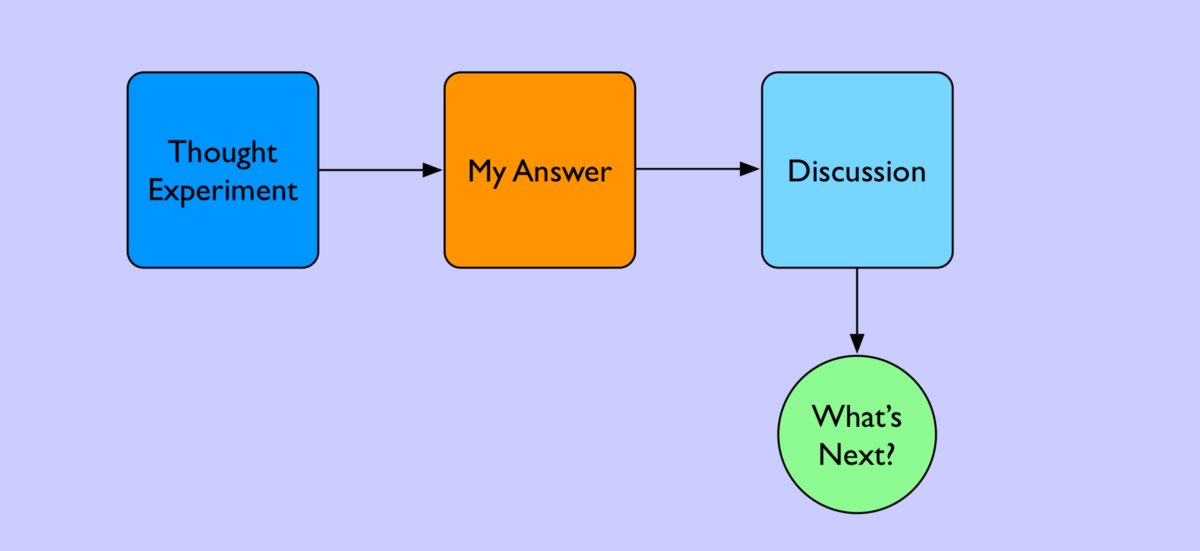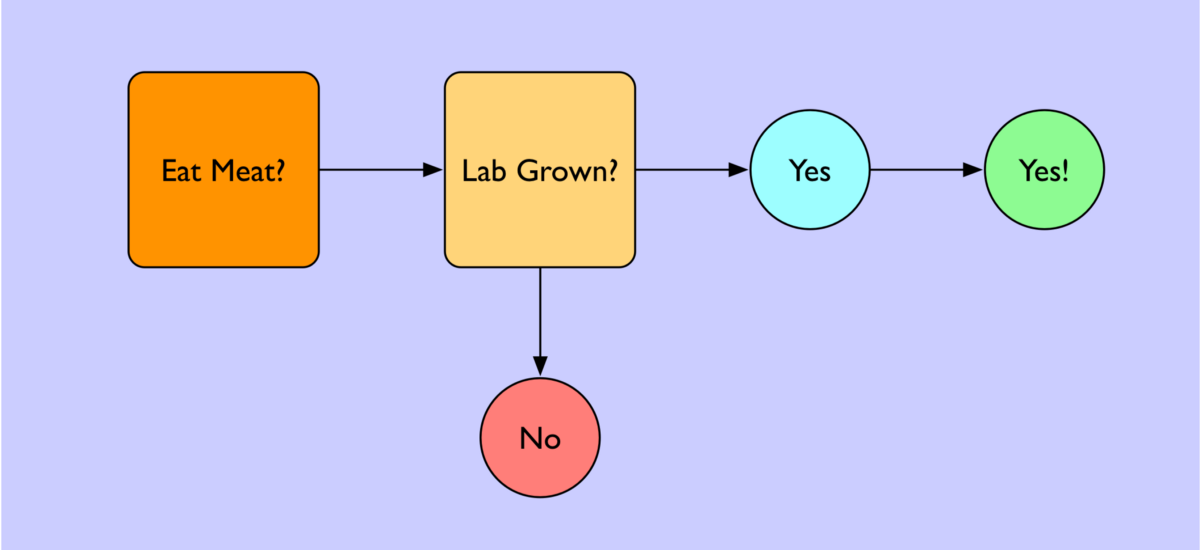Part 1 of N

The Set Up. My article about Jallikattu inevitably got several rejoinders about the immensely greater harm done by factory farming. Besides, there were thoughtful commentators who questioned the propriety of urban meat eaters (i.e., nonvegetarians as we Indians call them) lecturing rural Indians on animal welfare on their way to a burger at McDonalds.
There’s no doubt that human demand for food is at the heart of animal suffering, much more so than any form of entertainment. This article is addressed to those who don’t believe in exploiting animals for any human purpose: for food, for clothing, for entertainment. Nevertheless, I want to find out if there are any circumstances under which I would eat meat, and if so, what might those be.
The way I am going to do so is to set up a series of thought experiments and ask myself whether I would eat meat in the circumstances of the experiment.Then, I am going to answer the obvious follow-up question: in a given situation, why did I choose to eat meat (if I did) and why I rejected that choice (if I didn’t). As I see them, the thought experiments have a loose analogy to the famous trolley problems.

Trolley Problems
Oh, before I forget: this is only the first in a series. One thought experiment per essay along with my intuitions about the outcome of the experiment.

Since I am talking about thought experiments, it should be clear that the exploration is theoretical with the goal of uncovering underlying principles, but I am also aware that my answers aren’t universal. Others might answer the questions differently and in doing so, we can plot the geography of vegan beliefs. So these thought experiments are also exercises in experimental philosophy.
Now that all the caveats are out there, let’s get to business with thought experiment #1.

Labacon. Imagine a not too distant future in which lab grown meat is indistinguishable from the slaughtered kind.
You’re sitting at the breakfast table with your uncle Ernie — the one who likes to brag about hunting wild boar with a knife — and he mentions this new brand of bacon he’s been loving.
“Hey Bob,” he says, “I have something to show you, it’s called labacon. It’s grown in a lab, but for the life of me, I can’t tell the difference between labacon and the real deal. Can you believe it?”
“Grown in a lab, huh, uncle Ernie,” you say.
“Grown in a lab” he smirks, “cloned from skin cells shed by a pig who’s treated like family. Want to try some?”
“So why did you buy it, uncle Ernie?” seeing as uncle Ernie has never shown kindness to any creature in living memory.
“It’s a lot cheaper.” Of course.
Before you have a chance to reply, Uncle Ern shouts an order to his wife (you know he’s a shouter, right?) “hey Martha, bring Bob here a sizzling piece of labacon, will ya?”
Five minutes later, the long suffering Aunt Martha sets a plateful of sizzling bacon in front of you. It smells heavenly. You’ve continued to love the smell of bacon even after you stopped eating meat in high school.
Question: do you eat the labacon?

What I would do. No brainer: I would wolf down the labacon.
In fact, to the extent that plants have some form of sentience — and I believe they do — it’s better to eat lab grown food than to eat anything that’s ever been alive.
It’s not as if plants are grown violence free — agriculture can be terribly destructive even when it’s organic. Plus, there’s no doubt that millions of animals are killed in the process of growing plant based foods.
Just as a brain in a vat can’t feel pain, meat in a vat can’t suffer. I have no problem at all with the meat itself; it’s how it becomes meat that bothers me. I know this will horrify many of my friends, but I welcome a world in which most food production is done in large laboratory like facilities with minimal environmental footprint.
An earth covered with forests interspersed by skyscraper sized silos for brewing labacon would be an ideal world.

Caveat. As a lifelong vegetarian — now vegan — meat holds no fascination. I know it’s a cliche, but I can’t stand the smell of meat, especially fish. Having said that, I never had that problem with bacon. It smells good. It looks good: crunchy and greasy at the same time. As a junk food connoisseur, bacon hits all the right spots.
Of course, I don’t really know what I would do if and when I taste labacon, but it’s only a matter of time before I get to do so.
A final kink before I sign off: what if the labacon was human meat? In other words, if someone cloned a human skin cell and cultured it to taste like labacon, would I eat it? Let’s make it even more interesting:
What if I took one of my skin cells and cultured it to taste like labacon, would I eat my own meat?
When posed this way, I find my gut and my head going in opposite directions. The thought of eating human meat, however cultured, is deeply disturbing. On the other hand, what could be more morally clean than taking my own flesh — over which we can all agree I have maximal authority — culturing it and then consuming it? It’s the closest I’ll get to being a plant without photosynthesis.



